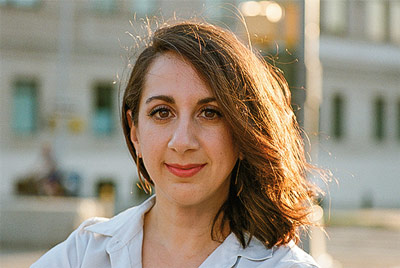Musical Documentary Named Finalist for 2024 Pulitzer Prize in Music
UC San Diego alumna Mary Kouyoumdjian developed “Paper Pianos” to highlight the global refugee crisis.
Published Date
Story by:
Share This:
Article Content
This article originally appeared in the fall 2024 issue of UC San Diego Magazine as “Paper Pianos.”
Mary Kouyoumdjian ’05 has firsthand knowledge about the impact of the global refugee crisis. As a first-generation Armenian American, many of her family members were displaced from their country of origin. Her most recent work, “Paper Pianos,” brings heart to the refugee experience and was named a finalist for a Pulitzer Prize in music in 2024. While one piece of music cannot end the destructive pattern of displacement, she believes the arts have the potential to help others understand the trauma of this experience.
“Paper Pianos” centers on the narratives of four refugees and resettlement workers. “Displacement unfortunately continues to be a universally shared experience,” says Kouyoumdjian. “At some point, we have to stop accepting this as the natural state of our world.”
Kouyoumdjian’s chance meeting with Afghan musician Milad Yousufi was an important catalyst for the composition. While under strict Taliban rule, Yousufi taught himself how to play piano silently by drawing the black and white keys on a paper napkin. If anyone had heard the music, there could have been deadly consequences.
After fleeing his home country in 2015, Yousufi settled in New York City. His immigration lawyer connected him to Kouyoumdjian via the chamber orchestra Alarm Will Sound. She offered him an upright piano to practice on, and the two became fast friends.

“What struck me most about Milad was both his unwavering commitment to his own expression and his hope that sharing his story could encourage audiences in the U.S. to not take their freedom of creative expression for granted,” says Kouyoumdjian. “I’m immensely inspired by him, honored to know him and love watching his creativity flourish.”
For Kouyoumdjian, the prospect of gaining greater exposure for the lived experiences of displaced people is the most valuable outcome of being named an award finalist. “I hope this project’s nomination allows their stories to be shared more widely and encourages further examination of the global refugee crisis.”
Share This:
Stay in the Know
Keep up with all the latest from UC San Diego. Subscribe to the newsletter today.





